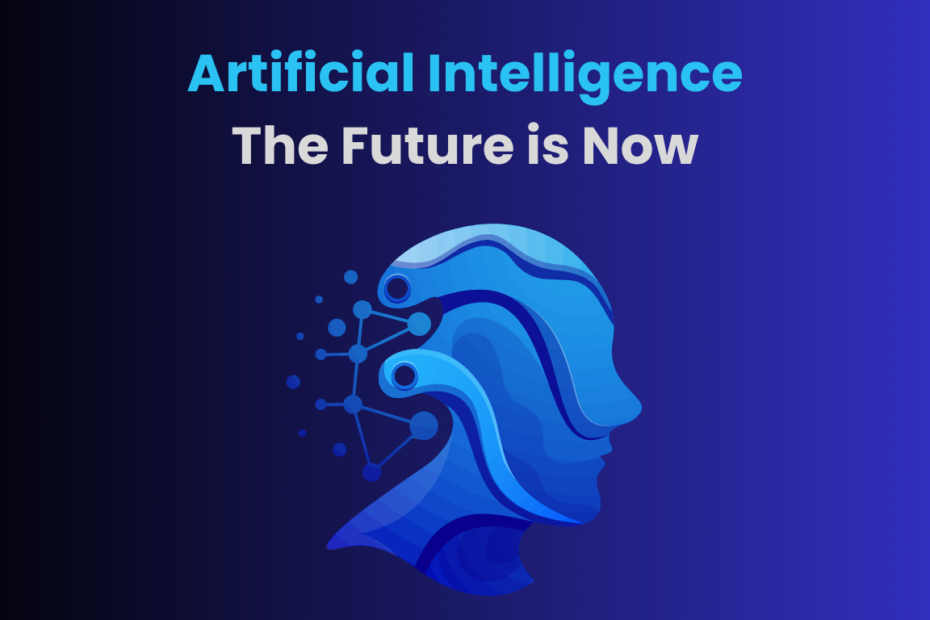Introduction
Artificial Intelligence (AI) is no longer just a futuristic concept from sci-fi novels and movies. It has become an integral part of our daily lives, influencing industries, businesses, and even personal interactions. From virtual assistants like Siri and Alexa to self-driving cars, AI is shaping the way we live and work. But what exactly is AI? How is it transforming different sectors, and what does the future hold for this groundbreaking technology? This blog delves into the world of AI, exploring its applications, challenges, and potential.
Understanding Artificial Intelligence
AI refers to the simulation of human intelligence in machines. These machines are programmed to think, learn, and make decisions like humans. AI can be broadly categorized into three types:
- Narrow AI – Also known as Weak AI, this type of AI is designed for specific tasks, such as facial recognition, voice assistants, and recommendation algorithms. Most of the AI we interact with today falls into this category.
- General AI – Also called Strong AI, this AI type possesses human-like cognitive abilities, allowing it to understand, learn, and apply knowledge across various domains. General AI remains theoretical and is still a work in progress.
- Super AI – This is a hypothetical form of AI that surpasses human intelligence in every aspect. If achieved, it could revolutionize the world but also pose significant ethical and existential risks.
Applications of AI in Different Industries
AI is revolutionizing numerous industries, making processes more efficient, reducing human errors, and improving decision-making. With the increasing demand for AI-powered solutions, many companies are now adopting professional AI development services to build customized models tailored to their business needs. Here are some of the key sectors benefiting from AI:
1. Healthcare
AI is transforming healthcare by assisting in diagnostics, personalized treatment plans, and robotic surgeries. Machine learning algorithms analyze medical data to detect diseases such as cancer at early stages, improving patient outcomes. AI-driven chatbots and virtual assistants also enhance patient care by providing instant medical advice.
2. Finance
Financial institutions leverage AI for fraud detection, risk assessment, and algorithmic trading. AI-powered chatbots handle customer queries efficiently, while robo-advisors provide investment guidance. Predictive analytics helps banks anticipate customer needs and tailor services accordingly.
3. Retail and E-commerce
AI enhances customer experience by personalizing product recommendations, optimizing inventory management, and improving supply chain efficiency. AI-driven chatbots and virtual shopping assistants make online shopping more seamless and interactive.
4. Transportation
Self-driving cars and smart traffic management systems are prime examples of AI in transportation. AI improves safety, reduces congestion, and enhances public transport efficiency. Companies like Tesla and Waymo are pushing the boundaries of autonomous driving technology.
5. Education
AI-powered educational tools personalize learning experiences, adapt to students’ needs, and automate administrative tasks for teachers. AI tutors provide instant feedback, helping students grasp complex concepts more effectively.
6. Entertainment and Media
Streaming platforms like Netflix and Spotify use AI to recommend content based on user preferences. AI-generated art, music, and even news articles showcase the growing influence of AI in creative fields.
The Ethical and Social Challenges of AI
While AI presents numerous benefits, it also comes with ethical concerns and societal challenges. Some of the major concerns include:
1. Job Displacement
Automation powered by AI may replace certain jobs, especially those involving repetitive tasks. While AI creates new job opportunities, reskilling the workforce remains a critical challenge.
2. Bias and Discrimination
AI algorithms can inherit biases from the data they are trained on, leading to unfair or discriminatory outcomes. Ensuring transparency and fairness in AI decision-making is crucial.
3. Privacy and Security
AI-powered surveillance and data collection raise concerns about privacy violations. Protecting personal data and ensuring cybersecurity in AI systems is essential.
4. Autonomous Weapons
The use of AI in military applications, such as autonomous drones and weapons, raises ethical questions about the role of humans in warfare and the potential risks of AI-driven conflicts.
The Future of AI
AI is evolving rapidly, and its future holds endless possibilities. Some of the anticipated advancements include:
- Improved Natural Language Processing (NLP): AI will become more adept at understanding and generating human language, making interactions with machines more natural and intuitive.
- General AI Development: Researchers are working towards creating AI that can perform tasks across multiple domains with human-like intelligence.
- AI in Space Exploration: AI is playing a crucial role in space missions, assisting in navigation, data analysis, and autonomous decision-making.
- AI and Quantum Computing: The combination of AI with quantum computing could lead to breakthroughs in solving complex problems at unprecedented speeds.
Conclusion
Artificial Intelligence is undeniably reshaping our world. Its applications span across industries, improving efficiency, decision-making, and overall quality of life. However, it also poses challenges that must be addressed to ensure responsible and ethical AI development. As AI continues to evolve, striking a balance between innovation and ethical considerations will be key to harnessing its full potential for the benefit of humanity. The future of AI is both exciting and uncertain, but one thing is clear—AI is here to stay, and its impact will only grow in the years to come.
Frequently Asked Questions (FAQ)
1. What is AI in simple terms?
AI is the ability of machines to perform tasks that typically require human intelligence, such as learning, problem-solving, and decision-making.
2. Will AI take over human jobs?
AI may replace some jobs, especially repetitive ones, but it will also create new opportunities, requiring workforce adaptation and reskilling.
3. Can AI become smarter than humans?
Currently, AI is limited to specific tasks (Narrow AI). Super AI, which could surpass human intelligence, is still theoretical and poses ethical concerns.
4. Is AI safe?
AI is generally safe when developed and used responsibly. However, concerns like bias, privacy risks, and autonomous weapons need careful regulation.
5. How does AI impact daily life?
AI enhances daily life through virtual assistants, personalized recommendations, smart home devices, and automation in various services, improving efficiency and convenience.

